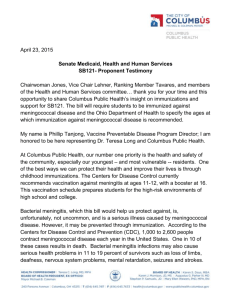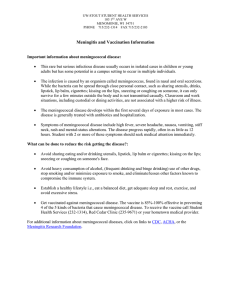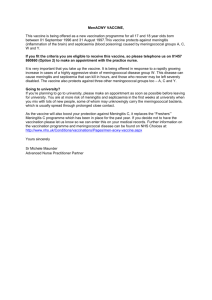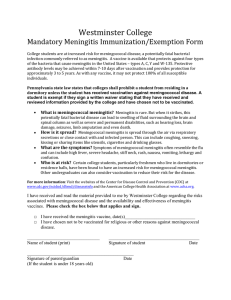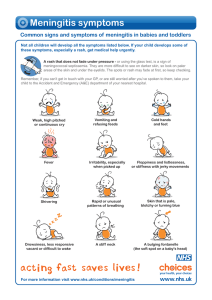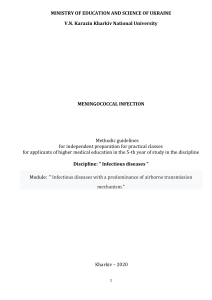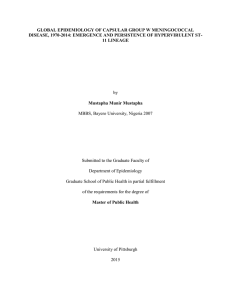First Year Meningitis Letter
advertisement
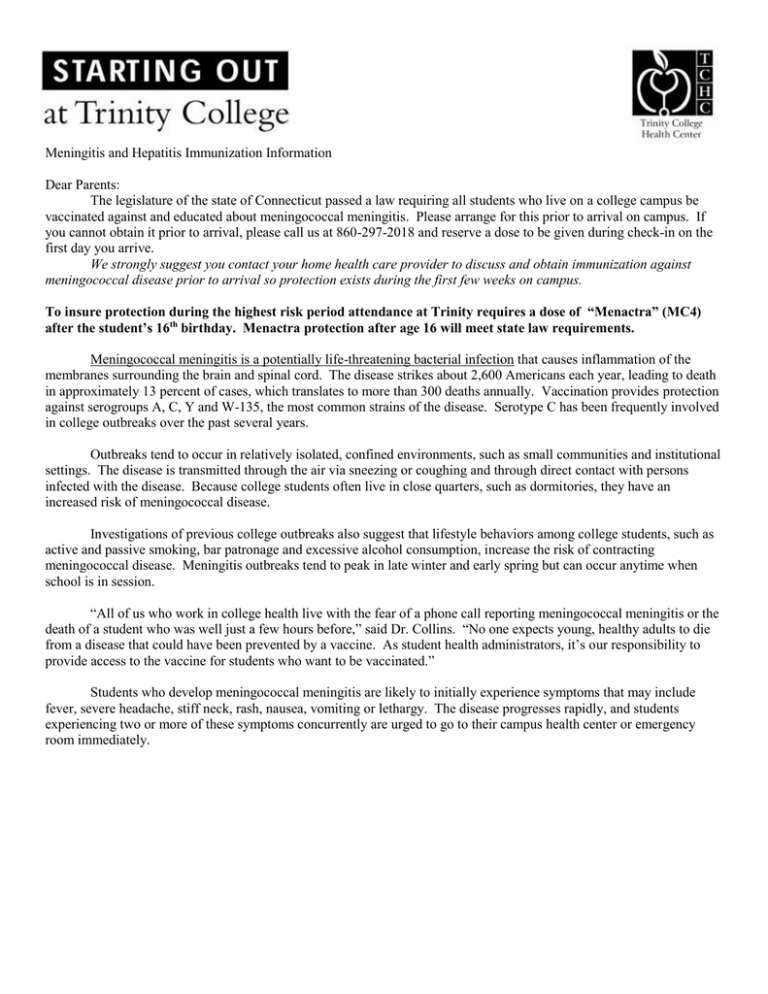
Meningitis and Hepatitis Immunization Information Dear Parents: The legislature of the state of Connecticut passed a law requiring all students who live on a college campus be vaccinated against and educated about meningococcal meningitis. Please arrange for this prior to arrival on campus. If you cannot obtain it prior to arrival, please call us at 860-297-2018 and reserve a dose to be given during check-in on the first day you arrive. We strongly suggest you contact your home health care provider to discuss and obtain immunization against meningococcal disease prior to arrival so protection exists during the first few weeks on campus. To insure protection during the highest risk period attendance at Trinity requires a dose of “Menactra” (MC4) after the student’s 16th birthday. Menactra protection after age 16 will meet state law requirements. Meningococcal meningitis is a potentially life-threatening bacterial infection that causes inflammation of the membranes surrounding the brain and spinal cord. The disease strikes about 2,600 Americans each year, leading to death in approximately 13 percent of cases, which translates to more than 300 deaths annually. Vaccination provides protection against serogroups A, C, Y and W-135, the most common strains of the disease. Serotype C has been frequently involved in college outbreaks over the past several years. Outbreaks tend to occur in relatively isolated, confined environments, such as small communities and institutional settings. The disease is transmitted through the air via sneezing or coughing and through direct contact with persons infected with the disease. Because college students often live in close quarters, such as dormitories, they have an increased risk of meningococcal disease. Investigations of previous college outbreaks also suggest that lifestyle behaviors among college students, such as active and passive smoking, bar patronage and excessive alcohol consumption, increase the risk of contracting meningococcal disease. Meningitis outbreaks tend to peak in late winter and early spring but can occur anytime when school is in session. “All of us who work in college health live with the fear of a phone call reporting meningococcal meningitis or the death of a student who was well just a few hours before,” said Dr. Collins. “No one expects young, healthy adults to die from a disease that could have been prevented by a vaccine. As student health administrators, it’s our responsibility to provide access to the vaccine for students who want to be vaccinated.” Students who develop meningococcal meningitis are likely to initially experience symptoms that may include fever, severe headache, stiff neck, rash, nausea, vomiting or lethargy. The disease progresses rapidly, and students experiencing two or more of these symptoms concurrently are urged to go to their campus health center or emergency room immediately.
